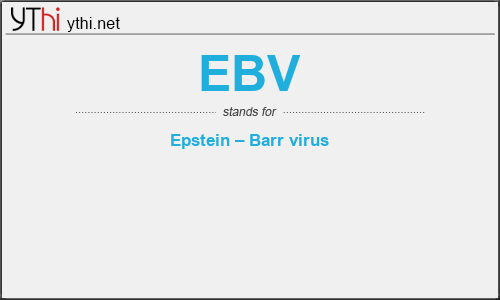What does EBV mean? What is the full form of EBV?
The full form of EBV is Epstein – Barr virus
Epstein-Barr virus (EBV), also known as human herpesvirus 4, is a member of the herpes virus family. It is one of the most common human viruses. EBV is found all over the world. Most people get infected with EBV at some point in their lives. EBV spreads most commonly through bodily fluids, primarily saliva. EBV can cause infectious mononucleosis, also called mono, and other illnesses.
Symptoms of EBV infection can include
- fatigue
- fever
- inflamed throat
- swollen lymph nodes in the neck
- enlarged spleen
- swollen liver
- rash
Many people become infected with EBV in childhood. EBV infections in children usually do not cause symptoms, or the symptoms are not distinguishable from other mild, brief childhood illnesses. People who get symptoms from EBV infection, usually teenagers or adults, get better in two to four weeks. However, some people may feel fatigued for several weeks or even months.
After you get an EBV infection, the virus becomes latent (inactive) in your body. In some cases, the virus may reactivate. This does not always cause symptoms, but people with weakened immune systems are more likely to develop symptoms if EBV reactivates.
EBV
means
Epstein – Barr virus![]()
Translate Epstein – Barr virus to other language.


Leave a Reply
You must be logged in to post a comment.